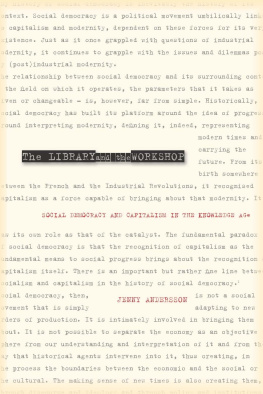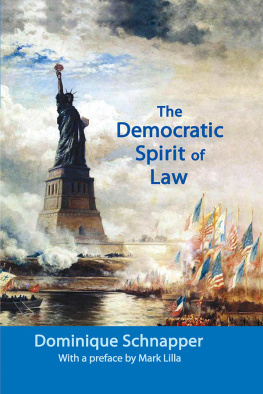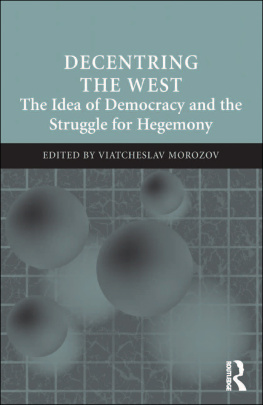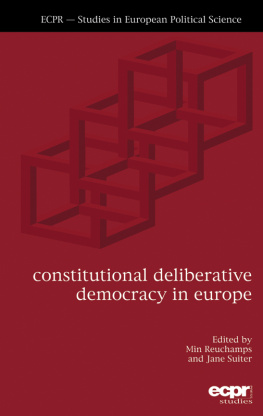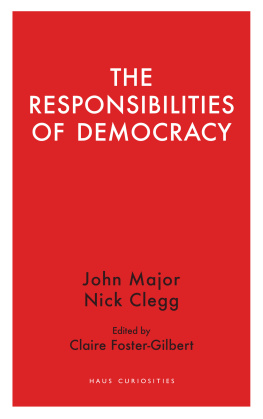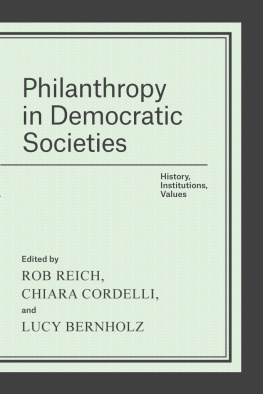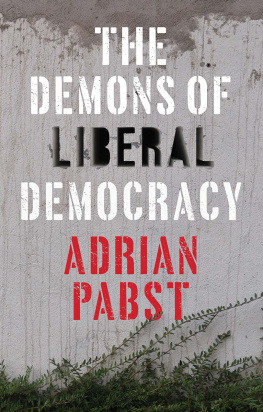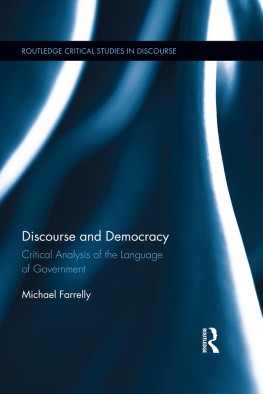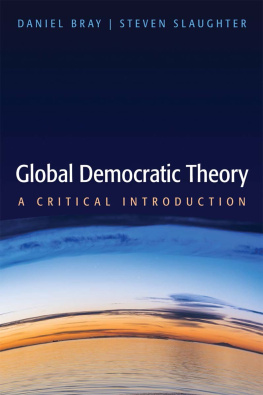THE AUTHORITARIAN INTERLUDE
The Authoritarian Interlude
Democracy, Values and the Politics of Hubris
PETER MARDEN
Independent Scholar
First published 2015 by Ashgate Publishing
Published 2016 by Routledge
2 Park Square, Milton Park, Abingdon, Oxon OX14 4RN
711 Third Avenue, New York, NY 10017, USA
Routledge is an imprint of the Taylor & Francis Group, an informa business
Copyright Peter Marden 2015
Peter Marden has asserted his right under the Copyright, Designs and Patents Act, 1988, to be identified as the author of this work.
All rights reserved. No part of this book may be reprinted or reproduced or utilised in any form or by any electronic, mechanical, or other means, now known or hereafter invented, including photocopying and recording, or in any information storage or retrieval system, without permission in writing from the publishers.
Notice:
Product or corporate names may be trademarks or registered trademarks, and are used only for identification and explanation without intent to infringe.
British Library Cataloguing in Publication Data
A catalogue record for this book is available from the British Library.
The Library of Congress has cataloged the printed edition as follows:
Marden, Peter.
The authoritarian interlude : democracy, values and the politics of hubris / by Peter Marden.
pages cm
Includes bibliographical references and index.
ISBN 978-1-4094-6860-8 (hardback) ISBN 978-1-3156-1383-3 (ebook) ISBN 978-1-3170-4083-5 (epub) 1. DemocracyPhilosophy. 2. Neoliberalism. 3. Common good. 4. Autonomy (Psychology) I. Title.
JC423.M35594 2015
321.8dc23
2014041053
ISBN 9781409468608 (hbk)
ISBN 9781315613833 (ebk-PDF)
ISBN 9781317040835 (ebk-ePUB)
Contents
Acknowledgments
Like many long-term projects this work has benefitted from numerous conversations with students, colleagues and friends about the shape of democracy and its future. I am particularly grateful for the support of RMIT University and the School of Global Urban Social Studies to which I have been attached for the last 14 years, and which granted me research leave on two occasions to complete this book. I owe a special debt to my research students who have inspired me with their insights into the politics of the modern era and for the plentiful robust discussions undertaken in cafes under the influence of copious amounts of caffeine. I am also grateful for the support of the editing staff at Ashgate, who were very patient and understanding of the problems and delays encountered throughout the writing of the book, especially Rob Sorsby, Elaine Couper and Brenda Sharp. Heartfelt thanks go to my family, especially my partner Judy and our four-legged companions who always kept my attention grounded on the things that really matter. As always, I take full responsibility for this book.
Chapter 1
Introduction
The fault, dear Brutus, is not in our stars,
But in ourselves, that we are underlings.
Julius Caesar (I, ii, 14041)
The evils of which our democracies suffer are primarily evils
related to the insatiable appetite of oligarchs
Jacques Ranciere, Hatred of Democracy, Translated by Steve Corcoran. Verso Press, 2006
The simple and quick response to the question of whether democracy is in trouble is a resounding, yes. In the age of the sound bite, we could leave it there as a statement of the obvious and move on through a series of questions on the themes of: what is the nature of the crisis, who is to blame, and what can we do about it? While this may appear to be the best way forward, the end result would be misleading. The nature of the problems and their complex interconnections defy a bullet-point like narrative.
Such an admission however does not have to come at the expense of clarity, because as we will see, language and politics intersect in ways that can either promote transparency of purpose or construct an elaborate edifice of lies and misinformation. There are some simple yet ambitious things this book is trying to deal with. An underlying and pivotal theme however is the need to engage the discourse on values. There are a number of questions one can pose about the problems of democracy, but some of the questions I pose are considered to be integral to filling the gaps of the usual discourse. What do we value as a political virtue? What are the core values of democracy in the modern era? What is a democratic culture? Can a democratic culture coexist with a predatory capitalist corporatism? What is a tolerant pluralistic public philosophy? Is democracy just about human rights? Is the key to achieving a secure democratic future based on acts of deliberation or through contingent direct action? What is the nature of public dissent and how have the conditions enabling dissent changed?
These are some of the questions posed in this book. I can only arrive at a directional sense of where I believe the best prospects lie. So in this sense I am not writing a manifesto for a new beginning in democratic politics but rather critically exploring political possibilities. Perhaps the best politics lies in the aspirational, in what we hope to achieve rather than a pragmatic acceptance of what is simply achievable. There is a well-defined strand of normative idealism with both republican and deliberationist approaches to democracy, and this will be addressed in the book. There is a rich tapestry of ideas contained in these approaches that opens a polemic about the nature of politics, yet they both neglect important aspects that a realist perspective brings out. Notwithstanding, the moralistic undertones to my claims about politics and public culture arise not from a desire to shape individuals into one-dimensional moral agents, but to provoke a self-questioning about values in the Socratic tradition that I believe a democratic culture must rest on. Hence, this is largely a reflexive task which begins and endures with the individual through processes of self-examination. In this sense, the best hope for democracy does not lie with establishing procedural rational manifestos, but rather with normative constructions and robust dialogue around the expectations of politics and community. This recognition however must also be accompanied with an immanent critique of the serious limitations between the is and the ought concerning the context in which suggested changes need to occur.
Concern over values and an ethics of practice I argue is central to any attempt to understand democracy and its current discontents. Democracy like any other construction of participation and politics has its genuine supporters and enemies. And like many debates and disputes over distinctions they rarely deliver a concise definition that all parties adhere to beyond the tension of tolerable difference. To what extent these debates are representative of a clash of values or differences in approaches to achieve similar ends is not always easy to distinguish. I am tempted however; considering the ever-growing corporate reign over social and political space and the governmentalities of the state; to accept that we are amidst a serious conflict over values, which are grounded irrevocably to class and economic interests. As will become clear, I believe these conflicts to be irreconcilable in part and choices will have to be made over which values should underpin a politics that nurtures a democratic culture. The question then remains: who makes the decisions and for whose benefit?


